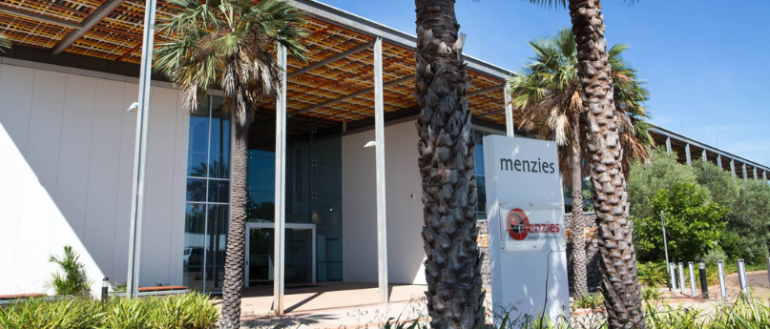Dear friends, .jpg)
You’ll notice that this edition of Healthy Tomorrow has an international flavour.
As World Health Day approaches (7 April), Menzies School of Health Research has been reflecting on the work we do every day to support this year’s theme of “Health For All”. The World Health Organization (WHO) is celebrating 75 years of public health successes that have improved quality of life.
At Menzies, we’ve been celebrating our research and partnerships to improve global and tropical health. In September we marked the 3-year anniversary of the establishment of the Timor-Leste office. Since we first signed an agreement with the Ministry of Health (MoH), Menzies presence in Dili has grown from just under a dozen staff to more than 60. The Timor-Leste team is wrapping up work on one of the site’s first programs, the ARIA-RISE project, which works in partnership with the MoH, the National Health Laboratory in Timor-Leste, and Australia’s National Centre for Immunisation Research and Surveillance, with support from the Australian Department of Foreign Affairs and Trade. This work has influenced changes in government policy and supported local COVID-19 testing during the pandemic. You can read more about those projects in this edition.
Staying in the Asia-Pacific, region, Menzies has been working with our near neighbours to eliminate malaria, one of the WHO’s goals. Our team has been evaluating malaria transmission and agricultural land use in Indonesia under the Zoomal project and there’s been some great progress at the study’s halfway point. In Papua New Guinea, work is underway as part of the SAPOT study, which explores the effectiveness of malaria prevention treatment strategies in pregnancy. The first 40 babies from mothers enrolled this project have been born and you can read about the progress of this study in this edition of Healthy Tomorrow.
Speaking of babies, Menzies has been doing a lot of work on maternal and child health here in Australia. Through the BLIPA trial, our researchers are looking at how to stop respiratory illnesses developing into childhood asthma, a global problem. In this edition, our 2022 Ryan Family Prize winners, the staff from the Play to Connect team, reflect on growing from participants to project leaders under the program and what it means to their community. You can also read how Menzies works in partnership with these communities to ensure we address shared priorities and our work translates into real world impacts.
Our focus working with Aboriginal communities and finding enduring solutions to health problems that matter is being guided by our newly appointed Deputy Directors Research - Professor Anna Ralph and Professor Louise Maple-Brown, and the recently launched Centre of Research Excellence for Strengthening Health Systems in Remote Australia (CRESTRA).
A few weeks ago we held the graduation ceremony for the Menzies-Ramaciotti Centre and Biyamarr ma graduates. It’s been fantastic to celebrate our up-and-coming Aboriginal trainees and the work of our staff supporting career and development pathways. The Menzies-Ramaciotti Regional and Remote Health Sciences Training Centre is focused on developing a local, and Aboriginal and Torres Strait Islander health workforce in the Northern Territory. It supports youth into education and training pathways from school through to employment in the NT health workforce. I know you’ll join me in congratulating this year’s graduates.
Kind regards,
Alan
Professor Alan Cass AO, Director

